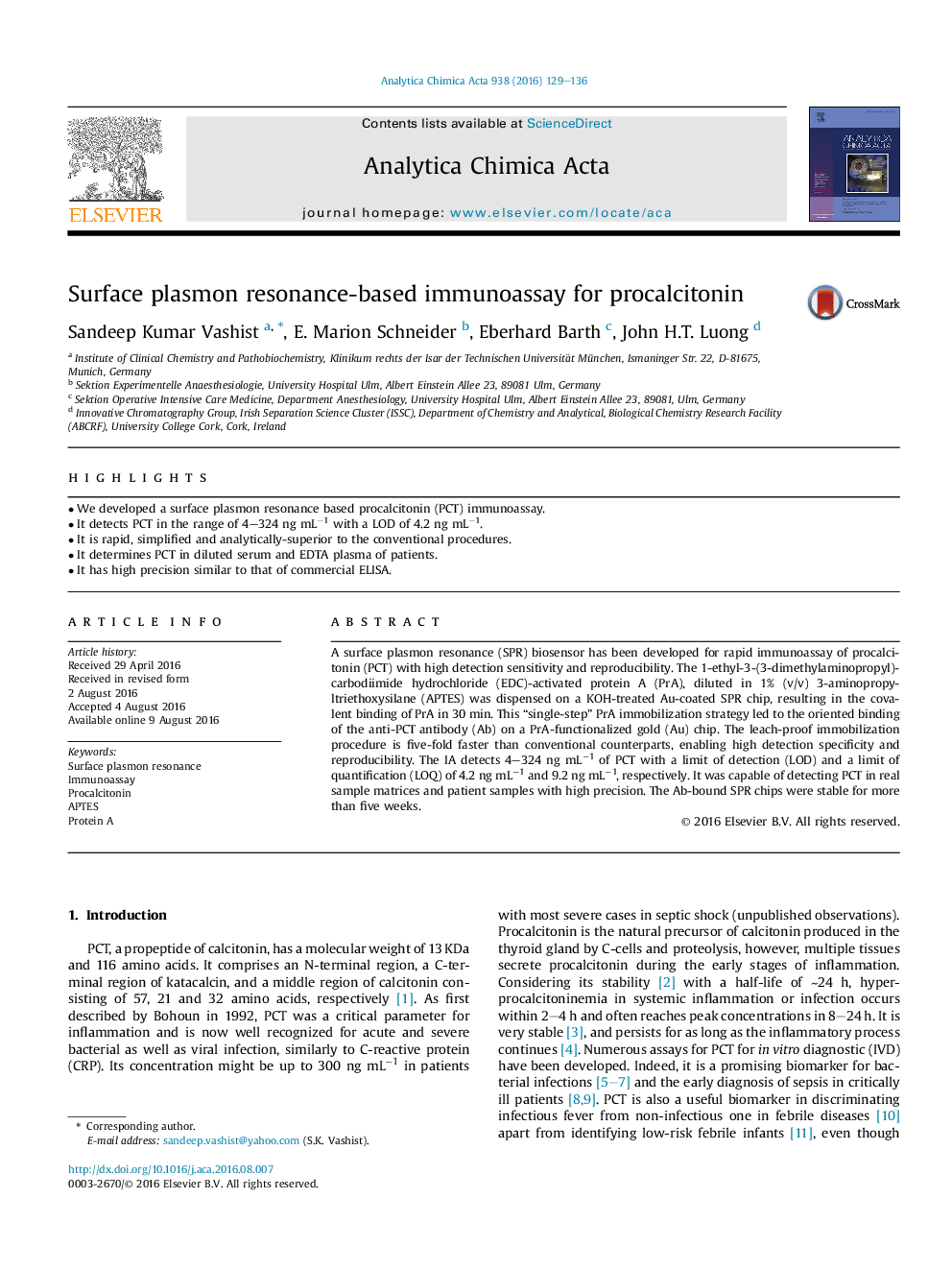| کد مقاله | کد نشریه | سال انتشار | مقاله انگلیسی | نسخه تمام متن |
|---|---|---|---|---|
| 5131403 | 1490894 | 2016 | 8 صفحه PDF | دانلود رایگان |
- We developed a surface plasmon resonance based procalcitonin (PCT) immunoassay.
- It detects PCT in the range of 4-324 ng mLâ1 with a LOD of 4.2 ng mLâ1.
- It is rapid, simplified and analytically-superior to the conventional procedures.
- It determines PCT in diluted serum and EDTA plasma of patients.
- It has high precision similar to that of commercial ELISA.
A surface plasmon resonance (SPR) biosensor has been developed for rapid immunoassay of procalcitonin (PCT) with high detection sensitivity and reproducibility. The 1-ethyl-3-(3-dimethylaminopropyl)-carbodiimide hydrochloride (EDC)-activated protein A (PrA), diluted in 1% (v/v) 3-aminopropyltriethoxysilane (APTES) was dispensed on a KOH-treated Au-coated SPR chip, resulting in the covalent binding of PrA in 30 min. This “single-step” PrA immobilization strategy led to the oriented binding of the anti-PCT antibody (Ab) on a PrA-functionalized gold (Au) chip. The leach-proof immobilization procedure is five-fold faster than conventional counterparts, enabling high detection specificity and reproducibility. The IA detects 4-324 ng mLâ1 of PCT with a limit of detection (LOD) and a limit of quantification (LOQ) of 4.2 ng mLâ1 and 9.2 ng mLâ1, respectively. It was capable of detecting PCT in real sample matrices and patient samples with high precision. The Ab-bound SPR chips were stable for more than five weeks.
Journal: Analytica Chimica Acta - Volume 938, 28 September 2016, Pages 129-136
